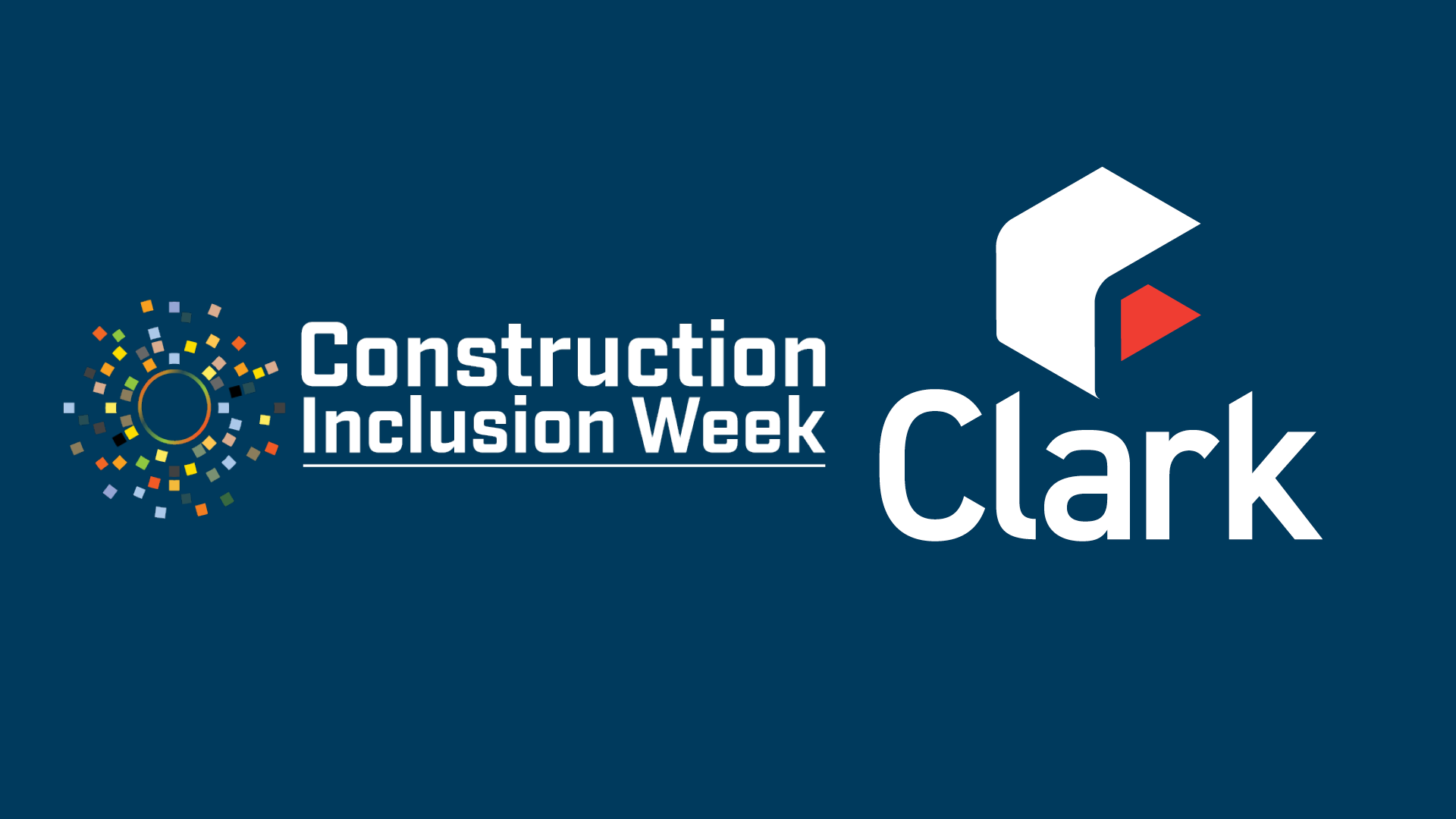
As a part of Construction Inclusion Week we will have articles from Clark team members discussing various topics in a JEDI lens.
by Bill Clark
Workplace culture refers to the shared values, beliefs, attitudes, and behaviors that characterize an organization and its employees. It is often considered the “personality” of a company and can have a significant impact on employee satisfaction, productivity, and overall success. Here are some key aspects of workplace culture:
- Values and Mission: A strong workplace culture is often rooted in a clear set of values and a well-defined mission statement that guides the organization’s purpose and direction.
- Leadership: The behavior and actions of leaders within an organization can heavily influence its culture. Leaders set the tone and expectations for the workplace, and their leadership style can either promote a positive or negative culture.
- Communication: Open and effective communication is vital for a healthy workplace culture. Employees should feel free to express their ideas and concerns, and there should be channels in place for feedback and suggestions.
- Collaboration: A culture that promotes teamwork and collaboration can lead to increased creativity, innovation, and problem-solving. Collaboration can be encouraged through both physical workspace design and company policies.
- Diversity and Inclusion: A culture that values diversity and promotes inclusion is essential in today’s diverse workforce. Companies that embrace different perspectives and backgrounds often experience greater success.
- Recognition and Rewards: Recognizing and rewarding employees for their contributions and achievements can foster a positive culture. It can include monetary rewards, promotions, or simple acknowledgments of a job well done.
- Work-Life Balance: A culture that respects work-life balance and supports employee well-being tends to have more satisfied and productive employees.
- Employee Development: Organizations that invest in their employees’ professional development and growth create a culture of continuous learning and improvement.
- Ethical Behavior: An ethical culture is one that values honesty, integrity, and responsible decision-making. It helps build trust with both employees and customers.
- Adaptability: In a rapidly changing world, a culture that is adaptable and embraces change can help an organization stay competitive.
- Customer Focus: A culture that prioritizes customer satisfaction and service excellence can drive long-term success.
- Risk Tolerance: Some organizations encourage calculated risk-taking as part of their culture, while others may have a more risk-averse approach.
- Employee Engagement: Engaged employees are more committed, motivated, and productive. A culture that fosters engagement often leads to higher retention rates.
- Conflict Resolution: A healthy culture should have mechanisms in place for resolving conflicts and addressing grievances in a fair and constructive manner.
- Feedback and Evaluation: Regular performance feedback and evaluation can help employees understand their role in the organization and contribute to a culture of continuous improvement.
It’s important to note that workplace culture is not something that can be changed overnight. It develops over time and requires the active involvement and commitment of leadership and employees alike. Companies often conduct culture assessments and surveys to understand their current culture and identify areas for improvement. A positive workplace culture can lead to higher employee morale, increased productivity, and a stronger overall organizational reputation.